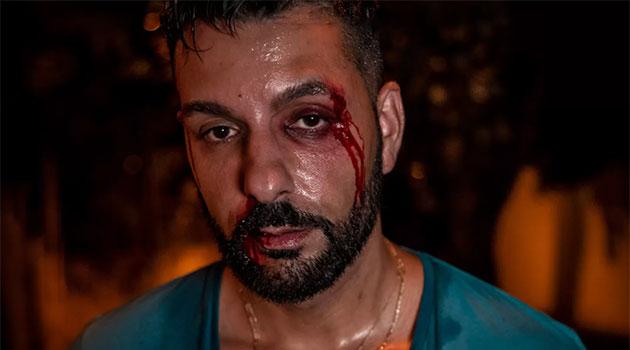Czech Republic, Hungary, Slovakia: NGO reports that LGBT+ Roma face discrimination from their own families as well as majority societies in these EU Member States

In the Czech Republic, Hungary and Slovakia, counsellors are helping LGBT+ Roma deal with multiple discrimination, according to research recently published by ARA ART, an NGO that has long focused on LGBT+ Roma in the Czech Republic and works for that community in particular; the study also highlights what it calls a legal vacuum that exists with regard to such people in these countries. According to the authors, an approach based on intersectionality is what new legislation in these countries now has to take into account.
LGBT+ Roma are not just victims of discrimination by the majority society and some of its institutions, but also frequently from their own families, for whom the LGBT+ orientation of their members is often difficult to accept. ARA ART is drawing attention to the issue of multiple discrimination with its campaign in the Czech Republic called “I did a terrible thing” and also runs a counseling center called Řeknu.to (“I will say it”).
According to estimates by ARA ART representatives, there are currently up to 1.5 million LGBT+ Roma living in Europe as a whole, but no assistance exists for them that would be both expert and targeted. The association has responded to this serious situation with its recently-published study on multiple discrimination against LGBT+ Roma which, according to its authors, is the first of its kind in the European Union.
The ARA ART campaign is being led by Monika Mihaličková, a former member of the Czech lower house and Romani activist, who says of such people that: “They are victims of discrimination on the part of the majority society and some institutions, and often also on the part of their own families.” She believes it is important that the ARA ART study is showing that the issue of multiple discrimination is happening in a certain conceptual legal vaccuum.
Such discrimination is said to be insufficiently addressed systematically, both at the level of existing legislation and with regard to the opportunites available for aid to such people that would be both expert and specialized. “We would be glad if an approach that is intersectional would be taken advantage of more by the law,” the ex-legislator says in a press release sent to the Romea.cz news server, in which she refers to the recent EU Council Recommendation calling on Member States to create equality, inclusion and participation for Romani men and women, including individuals from the LGBTI minority.
The ARA ART materials describe the experience of Roman, a 30-year-old who lives and works in Northern Bohemia. He is described as considering himself both Czech and Roma, as he comes from a mixed non-Roma and Roma family, as considering himself heterosexual, and as having undergone gender reassignment at the age of 21.
“Unfortunately, I encounter discrimination in many cases. It is more often related to my gender identity and sexual orientation than to the fact that I am half-Roma,” Roman says of his particular experience.
“This is probably because my gender reassignment is more visible at first glance. One doctor, for example, once asked me if I could leave a waiting room so as not to frighten the other waiting patients,” he relates.
The fact that Roman identifies as male and decided to undergo a sex change operation was reportedly accepted better by his family than such revelations have been accepted by other Romani families with children who come out as LGBT+. “Since the launch of our counseling center, we have provided more than 2 500 individual consultations to LGBT+ Roma minority members, to their partners and to their entire families,” says ARA ART director David Tišer.
“Around 400 Romani men and women have approached us annually in recent years,” he says. The analytical report on the situation of LGBTIQ Roma is part of the project “Increasing the visibility of LGBTIQ Roma: supporting activities for the LGBTIQ Roma minority”, which is being implemented by ARA ART in cooperation with Quo Vadis and the Diverse Youth Network with support from the European Commission’s Rights, Equality and Citizenship Programme (2014-2020).